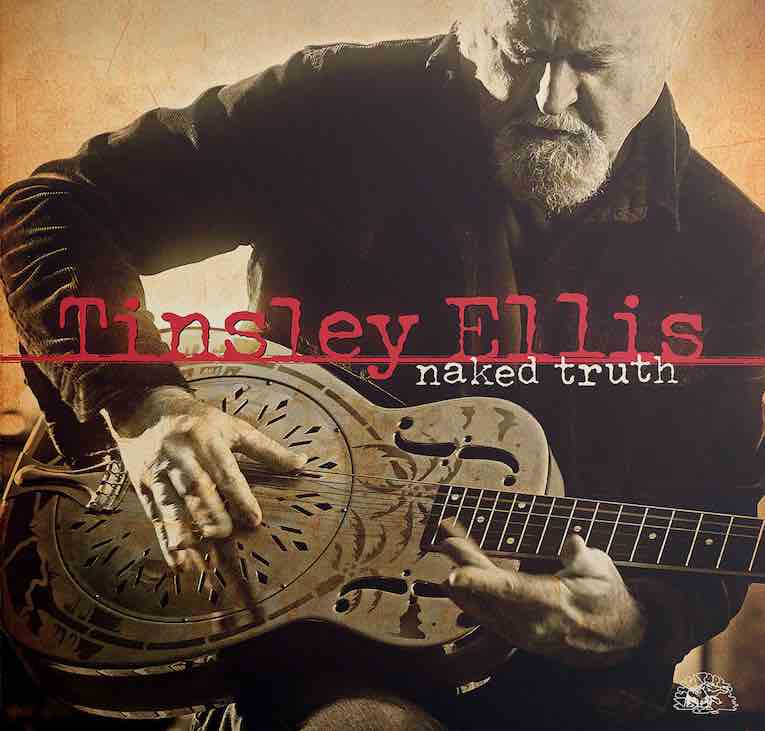WILLIE KENT
Willie Kent nació en 1936 en la pequeña ciudad de Inverness, Mississippi, a sólo cien millas al sur de la frontera con Tennessee y el blues formó parte activa a lo largo de su infancia. Su primera experiencia de cantar llegó en la iglesia, donde se fue "todo el tiempo" con su madre y hermano. "Blues y gospel provienen del mismo lugar", que dirían más tarde en la vida. "Los dos son del corazón." Pero él siempre se sintió identificado con el Blues. Dewitt Munson, un vecino que muchas veces de regreso a casa con una guitarra en la mano y una botella en el bolsillo, se detenía un rato en el porche Kent a descansar, dejando que el joven Willie mantenga su guitarra mientras él contaba historias. A través de la famosa "King Biscuit Time" estación de radio de KFFA, Willie disfrutaba de los sonidos de Arthur Crudup, Sonny Boy Williamson, y sobre todo Robert Nighthawk. En el momento de cumplir los once años, se escapaba regularmente al Harlem Inn en la carretera 61 a escucharlo todo en vivo: Raymond Hill, Jackie Brenston, Howlin 'Wolf, Clayton Amor, Ike Turner, Little Milton. etc.
Abandonó su casa a la edad de trece años. En 1952 llegó a Chicago, donde pronto estuvo trabajando todo el día y se dedicaba a escuchar música durante toda la noche. Uno de sus compañeros de trabajo era primo de Elmore James - y Willie Kent (todavía menor de edad) decidieron seguir al famoso músico de blues de club a club, absorbiendo su música. Cada fin de semana iría en busca de blues y lo encontró: Muddy Waters, Howlin 'Wolf, JB Lenoir, Johnnie Jones, Eddie "Playboy" Taylor, AC Reed, JB Hutto....Podéis cumplimentar su bio, si clícais encima del título del post .
WILLIE KENT, VOCALS, BASS
JACOB DAWSON, GUITAR
WILLIE DAVIS, GUITAR
KENNY BARKER, ORGAN
TIM TAYLOR, DRUMS
BILLY BRANCH, HARMONICA
MALACHI THOMPSON, TRUMPET
SONNY SEALS, TENOR TAX
STEVE BERRY, TROMBONE
(DELMARK 667)
The preeminent Chicago blues bassist of the postwar era, Willie Kent was the city's last surviving link to the Mississippi Delta tradition, backing a who's who of immortals including Muddy Waters, Howlin' Wolf, and Junior Parker as well as fronting his own long-running band, the Gents. Born in Inverness, MS, on February 24, 1936, Kent was the product of a sharecropping family, and was enlisted to pick cotton at the age of six. While local musician Dewitt Munson afforded his first exposure to the blues, as a teen he began dialing in Helena, AR's influential radio station KFFA, where the King Biscuit Time broadcast served as his introduction to formative influences including Arthur "Big Boy" Crudup, Sonny Boy Williamson, and Robert Nighthawk. By age 11, Kent was a surreptitious fixture at the Highway 61 club the Harlem Inn, catching acts headlined by Howlin' Wolf and Ike Turner. Two years later, he left home for Memphis, and after a brief tenure at a Florida gas station, he migrated to Chicago at the age of 16. There Kent bought his first guitar, which he loaned to musician Willie Hudson in exchange for lessons. In 1959, he joined Hudson's band Ralph & the Red Tops as a chauffeur, occasionally appearing on-stage as a vocalist. Whenever Hudson's bassist brother showed up for a gig too drunk to perform, Kent was summoned as his replacement, eventually taking over the position for good.
Ghetto Upon joining Little Milton's band in 1961, Kent's notoriety grew, and he became a steady presence at Kansas City Red's legendary "Blue Monday" parties. Kent was renowned as much for his talent as for his professionalism, a rare commodity in the blues world, and he regularly sat in with greats spanning from Muddy Waters to Little Walter. After leaving Little Milton, he tenured with Arthur Stallworth & the Chicago Playboys as the 1960s came to a close, followed by stints in support of Hip Linkchain and Jimmy Dawkins. After returning from a European tour, Dawkins relinquished his headlining gig at the West Side blues club Ma Bea's Lounge to Kent, who for the first time assembled his own band, Sugar Bear & the Beehives, with guitarist Willie James Lyons and drummer Robert Plunkett. Ma Bea's would serve as the setting for Kent's debut LP, 1975's live release Ghetto, and remained his home for over six years. In 1982, he returned to sideman duties, joining Eddie Taylor and contributing to his acclaimed 1985 swan song Bad Boy. After Taylor died that Christmas, Kent recruited his guitarist Johnny B. Moore and drummer Tim Taylor to form Willie Kent & the Gents: as their fellow bluesmen adopted an increasingly slick sensibility inspired by commercial R&B, the Gents championed the classic Delta 12-bar tradition, emerging as a favorite of blues purists at home and abroad.
Ain't It Nice After a series of heart ailments forced Kent to undergo triple bypass surgery in 1989, he spent his recovery examining his life and career, finally abandoning his longtime trucking gig in favor of pursuing music full-time. I'm What You Need, his first solo LP in 14 years, soon followed on the Big Boy label and proved the first in a flurry of releases that next included his Delmark debut, Ain't It Nice, which earned the Library of Congress Award for Best Folk/Blues Album of 1991. Kent also signed to the Austrian label Wolf for a pair of LPs, 1991's King of Chicago's West Side Blues and Live at B.L.U.E.S. in Chicago. With so many new records to his credit, it was inevitable that Kent finally earned the attention of blues fans and critics across the globe, and in 1995, he won the W.C. Handy Award for Best Blues Instrumentalist, Bass. Two years later, he earned the award again, and went on to claim the prize in nine consecutive years. Kent also notched five consecutive Most Outstanding Blues Musician, Bass honors from the magazine Living Blues, and with 1998's Delmark release Make Room for the Blues took home Chicago's Album of the Year prize. In early 2005, Kent was diagnosed with cancer, but continued his busy live schedule in spite of chemotherapy treatments. He lost his battle with the disease on March 2, 2006, just a week past his 70th birthday.
Willie Kent - Too Hurt To Cry Audio Cassette Release Date: 4 Feb 1994
There's little newness anyone should expect to hear on a contemporary blues record. The only thing that makes them valuable is if the performer has their own notion of the blues and can state it in a distinctive manner. Willie Kent certainly can; his mournful, often powerful vocals are frequently memorable, even when he's mining the reliable formula of heartache and anguish. If his compositions aren't lyrically transcendent, Kent's rendering of the words elevates them. You never tire of hearing him sing, and he makes you feel and believe his messages, even as his backing band plugs in familiar progressions and lines behind him. Indeed, it's only when Kent covers someone else's music that things become less interesting.





Comments